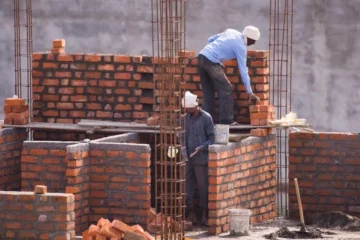KOCHI: Kandukuri Vinoda, a home-maker in Telangana, was one of the early victims of demonetisation drive as she committed suicide. She had Rs 54 lakh cash after selling land.
There is a co-relation between real estate transactions and demonetisation.
The former being often high-value ones, the customer will always be asked for the source of income If he/she wants to deposit it in a bank. But almost all of these real estate transactions in the country are undervalued ones. The sale price will be different from the amount entered in the registration document. So when it comes to the amount from real estate sales, how can one produce an actual source of income, as these are often undervalued ones.
“Currently, property from developers has three layers of taxes-Stamp Duty and Registration Charges, VAT and Service Tax. This translates to nearly 20 per cent of property value as taxes at the last point, which is very high, when compared to elsewhere in the world. Stamp Duty and Registration charges are levied with the base Guideline Value
determined by the Government. In fact, there are numerous cases where the guideline is higher than the market value,” says Shivaram Kumar Malakala, Co-Founder and Director, Habitat Ventures, a Bengaluru based firm.
But the actual problem is that the government only determines a cap price on a land/property.
The customer has to pay fee and tax in proportionate to that amount. Below which registration could not be done. Interestingly, the value determined by the government will be far away from the prevailing market rate.
Which simply means If the market rate of a piece of land is Rs 10 lakh per cent, the rate by the government will be Rs 1 lakh or even lower. Your registration document says only that amount.
Hence proving a source of income will be a herculean task.
Suresh Hari, Secretary, CREDAI Bangalore says that It is not correct to say undervaluation.
“It’s value based on guidance rate fixed by the government. The fact is that due to high stamp duty, registration value is based on guidance rate,” he adds.
“The practice of undervaluing resale properties on paper was a common one in the past, and its main intention was to accommodate a portion of the untaxed money to be paid in cash in the final sale price while keeping the stamp duty and registration charges at the minimum possible amount,” said Anuj Puri, Chairman and Country Head, JLL India.
According to Sanjeev Kumar G founder of Financial Planning firm prognoadvisor.com, it is a known fact that the market price of land/property will be at least 8 to 10 times higher than that of the ‘fair value’ determined by the government.
“Post demonetisation it is a catch 22 situation for both sellers and buyers of real estate assets. They have to declare the real value of assets and should be forced to document it,” he added.
[Source:-NIE]





